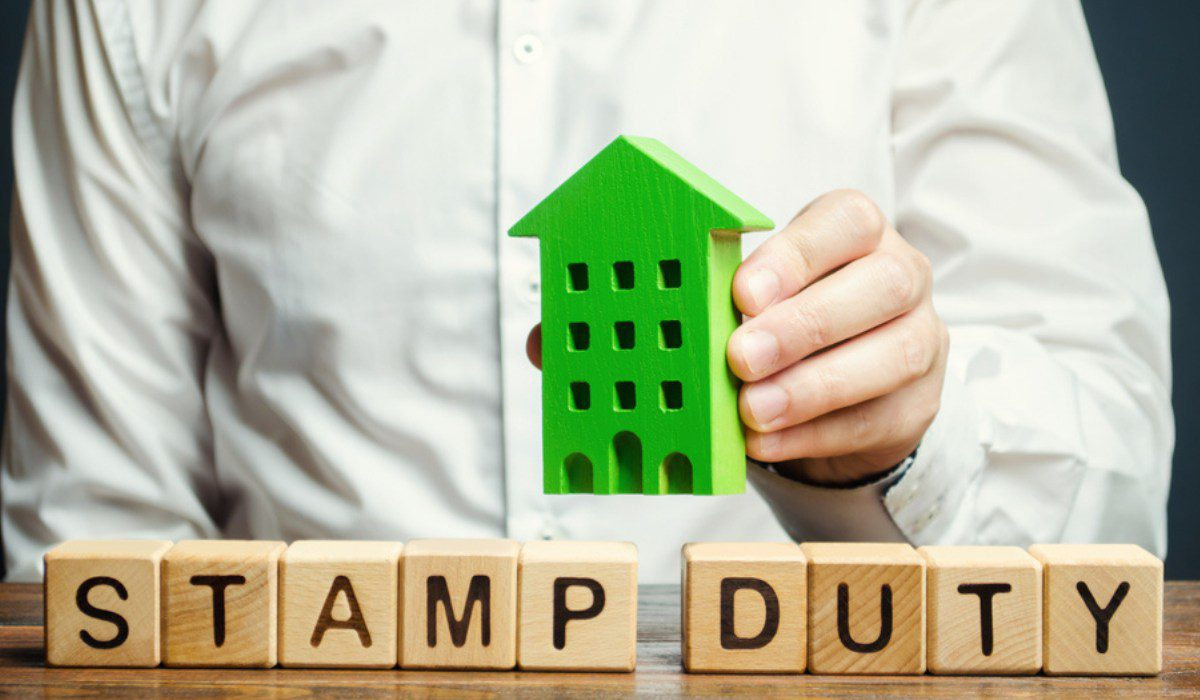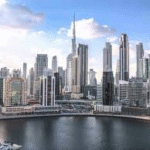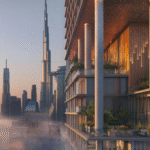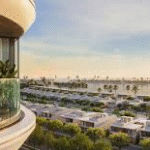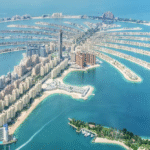Now Reading: Dubai Property: Tax-Free Zones Offering Real Investment Value in 2025
-
01
Dubai Property: Tax-Free Zones Offering Real Investment Value in 2025
Dubai Property: Tax-Free Zones Offering Real Investment Value in 2025
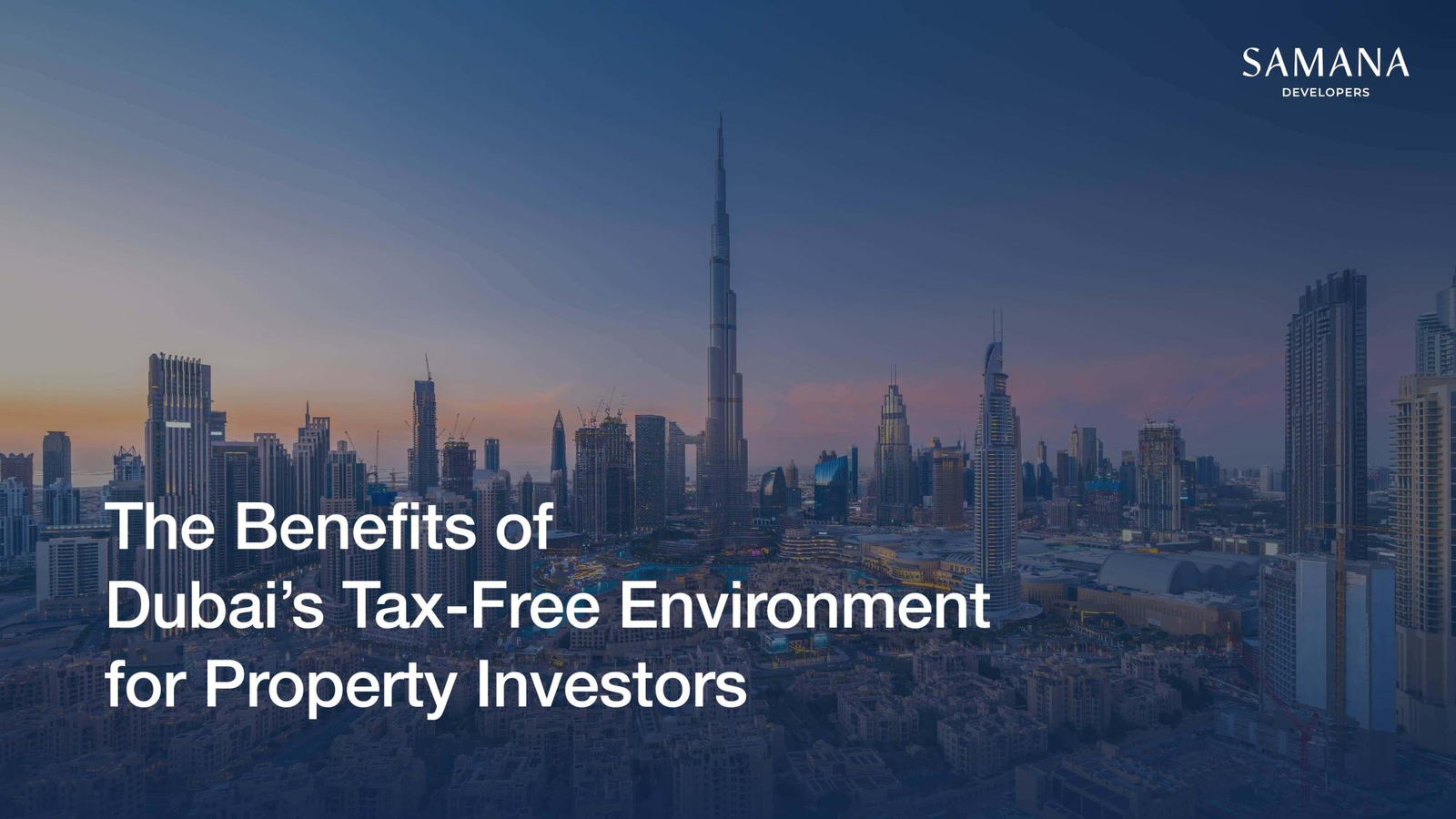
Table of Contents
Tax-Free Zones, Picture this: you buy a property, rent it out, and sell it for a profit, keeping every single dirham in your pocket. No taxes nibbling away at your returns. In Dubai, this is the reality that draws investors from across the globe. With no personal income tax, capital gains tax, or annual property taxes, Dubai’s real estate market is a haven for wealth-building. The UAE’s dirham, pegged to the U.S. dollar, eliminates currency risk, and residential sales and rentals are VAT-exempt, saving thousands upfront.
Free zones, where many of Dubai’s most promising properties lie, offer zero corporate tax for up to 50 years, making them a goldmine for savvy investors. In 2025, with a 5% population surge, 25 million tourists, and 5-8% price appreciation, Dubai’s property market boasts 6-10% rental yields, far surpassing London (2-4%) or New York (3-4%).
Whether you’re eyeing a cozy studio or a sprawling villa, Dubai’s tax-free zones deliver unmatched value. Let’s explore six prime free zones Dubai Studio City, Jumeirah Village Circle, Dubai Hills Estate, Dubai Marina, Business Bay, and Dubai South and why they’re your ticket to financial success in 2025.
The Power of Tax-Free Zones
Dubai’s free zones are designed to supercharge investment returns. By setting up a company in a free zone, you avoid corporate tax on rental income, potentially saving $1,000-$20,000 annually. Residential sales are VAT-exempt, saving 5% ($5,000-$50,000) on purchases, and there’s no capital gains tax, preserving profits on appreciation. A $200,000 property yielding 7% ($14,000 annually) keeps every dirham, compared to $9,800-$11,200 after taxes elsewhere. U.S. investors can deduct depreciation ($3,000-$30,000) and mortgage interest ($6,000-$20,000 for a $150,000-$500,000 loan at 4%) on their U.S. taxes, while non-U.S. investors benefit from double taxation treaties with 130+ countries.
Free zones also offer flexible payment plans (60/40 or 1% monthly) and Golden Visa eligibility for properties over $545,000, adding residency perks. With small business relief waiving corporate tax for revenues under $816,000 until December 31, 2026, these zones are a dream for individual investors and SMEs alike.
Dubai Studio City: Creative Hub With High Yields
Dubai Studio City (DSC), a free zone for media and creative industries, is a rising star for investors. Offering studios to 2-bedroom apartments priced from $136,125 to $408,375, with 7-10% yields, projects like Glitz by Danube and Skylofts by Emaar feature smart home tech, wellness amenities, and proximity to Dubai Sports City. A $150,000 studio could generate $12,000-$15,000 in tax-free rent, versus $8,400-$10,500 in tax-heavy markets.
VAT exemptions save $6,806-$20,419 per purchase, and a free zone company eliminates corporate tax on up to $36,754 in rental income, saving $3,675 annually. U.S. investors can deduct depreciation ($4,950-$14,836) and management fees ($762-$2,610), saving up to $5,503 at home. With 5-8% price growth and Blue Metro Line connectivity, DSC’s appeal to creatives ensures strong demand for short-term rentals. A 1% monthly payment plan ($1,361-$4,084) makes entry affordable, making DSC a top pick for investors targeting high yields in a vibrant free zone.
Jumeirah Village Circle: Affordable Tax-Free Haven
Jumeirah Village Circle (JVC), a freehold free zone, is a favorite for budget-conscious investors. Offering studios to 3-bedroom apartments priced from $136,125 to $545,000, with 7-10% yields, projects like Sereno Residences feature community parks and proximity to Circle Mall. A $150,000 studio could yield $12,000-$15,000 annually, tax-free, compared to $8,400-$10,500 elsewhere.
VAT exemptions save $6,806-$27,250, and a free zone company eliminates corporate tax on up to $54,500 in rental income, saving $5,450 yearly. U.S. investors can deduct depreciation ($4,950-$19,818) and management fees ($762-$3,815), saving up to $7,346. With 7% price growth and Al Khail Metro access, JVC attracts young professionals and families, ensuring high occupancy. A 60/40 payment plan with a 10% deposit ($13,613-$54,500) makes JVC accessible for first-time investors seeking tax-free wealth in a thriving free zone.
Dubai Hills Estate: Luxury With Tax-Free Perks
Dubai Hills Estate, a freehold free zone, blends luxury with tax-free returns. Offering 2-6 bedroom villas and apartments priced from $408,375 to $2.18 million, with 6-8% yields, projects like Emaar Collective 2.0 boast golf-course views and Dubai Hills Mall access. A $500,000 apartment could yield $35,000 annually, tax-free, versus $24,500-$28,000 elsewhere. Properties over $545,000 qualify for a Golden Visa, adding residency benefits.
VAT exemptions save $20,419-$108,900, and a free zone company eliminates corporate tax on up to $174,400 in rental income, saving $17,440 annually. U.S. investors can deduct depreciation ($14,836-$79,273) and management fees ($2,283-$13,952), saving up to $29,451. With 28.7% villa price growth and family-friendly amenities, Dubai Hills Estate ensures strong tenant demand. A 70/30 payment plan with a 10% deposit ($40,838-$217,800) makes it a premium choice for affluent investors in a tax-free zone.
Dubai Marina: Waterfront Wealth in a Free Zone
Dubai Marina, a freehold free zone, is synonymous with waterfront glamour. Offering 1-3 bedroom apartments priced from $326,700 to $816,750, with 6-8% yields, projects like Marina Gate feature yacht views and retail hubs. A $400,000 apartment could generate $28,000 in tax-free rent, versus $19,600-$22,400 elsewhere.
VAT exemptions save $16,335-$40,838, and a free zone company eliminates corporate tax on up to $65,340 in rental income, saving $6,534 annually. U.S. investors can deduct depreciation ($11,873-$29,673) and management fees ($1,827-$5,227), saving up to $11,006. With 6.2% price growth and DMCC Metro access, Dubai Marina’s vibrant lifestyle ensures high demand for short- and long-term rentals. A 60/40 payment plan with a 10% deposit ($32,670-$81,675) makes it a top free zone for investors seeking tax-free returns.
Business Bay: Corporate Hub With Tax-Free Edge
Business Bay, a freehold free zone, is a goldmine for investors targeting corporate tenants. Offering studios to 3-bedroom apartments priced from $272,250 to $1.09 million, with 6-8% yields, projects like Peninsula Four feature canal views and DIFC proximity. A $300,000 apartment could yield $21,000 annually, tax-free, versus $14,700-$16,800 elsewhere.
VAT exemptions save $13,613-$54,500, and a free zone company eliminates corporate tax on up to $87,200 in rental income, saving $8,720 annually. U.S. investors can deduct depreciation ($9,891-$39,636) and management fees ($1,523-$6,976), saving up to $14,678. With 17% office rent increases and Business Bay Metro access, this hub guarantees high occupancy. A 70/30 payment plan with a 10% deposit ($27,225-$109,000) makes Business Bay a strategic free zone for investors seeking steady cash flow.
Dubai South: Emerging Free Zone With High Potential
Dubai South, a freehold free zone near Al Maktoum International Airport, is an up-and-coming hub. Offering villas and apartments priced from $217,800 to $952,875, with 6-8% yields, projects like The Oasis by Emaar feature sustainable designs and proximity to Expo City. A $300,000 apartment could yield $21,000 annually, tax-free, versus $14,700-$16,800 elsewhere.
VAT exemptions save $10,890-$47,644, and a free zone company eliminates corporate tax on up to $76,230 in rental income, saving $7,623 annually. U.S. investors can deduct depreciation ($7,927-$34,655) and management fees ($1,220-$6,107), saving up to $12,849. With 5-8% price growth and logistics hub proximity, Dubai South attracts expats, ensuring strong rental demand. A 60/40 payment plan with a 10% deposit ($21,780-$95,288) makes it a forward-looking free zone for investors betting on future growth.
Maximizing Value in Tax-Free Zones
To maximize returns, set up a free zone company to eliminate corporate tax, saving $1,000-$20,000 annually. Recover 5% VAT ($5,000-$50,000) on off-plan purchases via FTA registration. Leverage flexible payment plans to spread costs, and target high-demand zones like Dubai Marina for tenant stability. U.S. investors should report rental income on Schedule E, deducting depreciation, maintenance ($1,500-$5,000), and mortgage interest, saving thousands. Non-U.S. investors benefit from no UK capital gains tax (20-28%) and double taxation treaties. Green incentives, via DEWA registration, save $1,000-$6,000 annually on utilities, boosting your bottom line. Always consult a tax professional to ensure compliance with DLD regulations and optimize your strategy.
Navigating Risks for Success
Risks like off-plan delays, oversupply (41,000 new units), and global economic shifts exist. Mitigate by choosing trusted developers (Emaar, Danube, Select Group), verifying escrow compliance under the 2025 Oqood system, and targeting zones like Business Bay for high occupancy. Ensure proof of funds compliance to avoid fines up to $136,125. Golden Visa eligibility ($545,000 threshold) adds residency value, enhancing long-term returns.
Why Dubai’s Tax-Free Zones in 2025?
Dubai’s tax-free zones are a global outlier, offering financial freedom and high ROI. Dubai Studio City and JVC provide affordable entry, Dubai Hills Estate and Dubai Marina cater to luxury buyers, Business Bay targets professionals, and Dubai South offers future growth. With 58% of buyers being foreign nationals, flexible payment plans, and yields up to 10%, these zones align with Dubai’s 2040 Urban Master Plan for sustainable growth.
Whether you’re a first-time investor eyeing a JVC studio or a high-net-worth individual targeting a Dubai Hills villa, Dubai’s tax-free zones deliver real investment value. Seize the opportunity to build wealth in 2025’s dynamic market.
read more: Stamp Duty and Transfer Fees on Dubai Property in 2025



